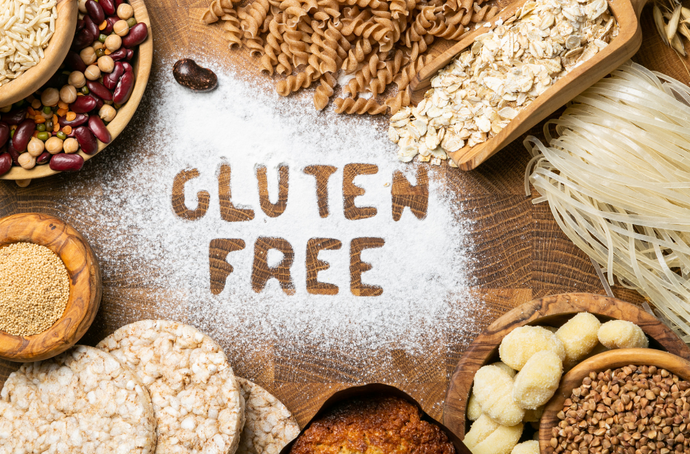
“Ketogenic” is a word for a low-carbohydrates, high fat diet that provides many health advantages (similar to the Atkins diet). The purpose is for you to get extra calories from protein and fat and less carbohydrates. This type of dietary regime can assist you in losing weight and improve your health.
HOW DOES KETO WORK?
The keto diet, or ketogenic diet, gets rid of almost all carbohydrates in your dish and makes fat your main energy source; people stick to it to lose weight.
It is working by collapsing stored fat and converts into fatty acids and things which we call ketone bodies.
Here are fundamentals of keto: The eating regimen intends to compel your body into utilizing an alternate kind of fuel. Rather than depending on sugar (glucose) that comes from carbs (like grains, vegetables, vegetables, and organic products), the keto diet depends on ketone bodies, a sort of fuel that the liver produces from putting away fat.
Consuming fat seems to be an absolute method to drop pounds. However, getting the liver to make ketone bodies is interesting:
- It necessitates that you deny yourself starches, less than 20 to 50 grams of carbs each day (remember that a medium-sized banana has around 27 grams of carbs).
- It sometimes requires a few days to achieve ketosis
- Eating a lot of protein can meddle with ketosis.
Between suppers, just as during fasting, starvation and difficult exercise, when blood glucose levels fall, unsaturated fats are delivered from fat tissue and can be utilized by most cells as a fuel source (with the exception of synapses which can't take-up unsaturated fats). In the liver some unsaturated fats are framed into 'ketone bodies' – acetoacetate which is then additionally used to beta-hydroxybutyrate and acetone. Ketone bodies can be utilized by tissues, including the brain, as a wellspring of fuel.
Keto Diet BENEFITS and RISKS
Ketogenic diets can,
- Minimize blood sugar and lower the risk of metabolic syndrome and diseases associated with it
- Control appetite – ketosis influences ‘hunger’ hormones and allows us to feel satiety longer. In contrast, eating more carbohydrates can have the opposite response.
- Aids with weight loss
- Support memory – improves mental focus can be achieved from the diet
- Enhance physical stamina – ketogenic diets are used by some sportsmen for endurance events
Though with a lot of benefits, Keto diet also has numerous risks.
Ideally: it's high in saturated fat. McManus suggests that you maintain saturated fats to no greater than 7% of your daily calorie-intake because of the relatedness to heart condition. And indeed, the keto diet is analogous to an increase in "bad" LDL cholesterol.
Other probable keto dangers include these:
Nutrient inadequacy. In case you're not eating a wide assortment of vegetables, organic products, and grains, you might be in danger from a lack in micronutrients, including selenium, magnesium, phosphorus, and nutrients B and C.
Constipation. Minimal fibrous foods like grains and legumes can be found in keto diet.
Liver complications. With so much fat to digest, the diet could make any existing liver illness worse.
Hazy thinking and fluctuating moods. One valid cause of confusion and irritability is in a low-carb diet, thus, the brain requires sugar from healthy carbohydrates to operate.
Kidney issues. The kidneys help break down protein, and keto diet may overburden them.
Those risks will pile up when not put into proper consideration — so please ensure that you speak to a physician and a registered nutritionist in an attempt for a ketogenic diet.
KETOGENIC DIET: MUST HAVES?
Imagine a food pyramid, the top portion of the pyramid takes 5% of the carbohydrates like asparagus, kale, lettuce, broccoli, spinach, cucumber, cabbage and the like. For the middle part of the food pyramid, it takes 20% of protein such as bacon, turkey, salmon, shrimp, sardines. In the bottom part, taking 75% of fats - taking the most and majority of this keto diet shall take foods like avocados, cacao butter, coconut milk powder, hemp seed, keto crackers, meat, poultry and eggs, dairy, healthy oils and fats.
AS A FINAL POINT,
A ketogenic diet typically goes around animal products and vegetables which can be more restrictive and requires effort. A worthwhile and tolerably safe diet treatment regardless of its long history, however, much remains unknown about the diet, including its mechanisms of action, the optimal protocol, and the full range of its applicability.
All life is an experiment. The more experiments you make the better. Your ultimate goal is to be fit and shift your diet to a healthier pattern, for a better you.

